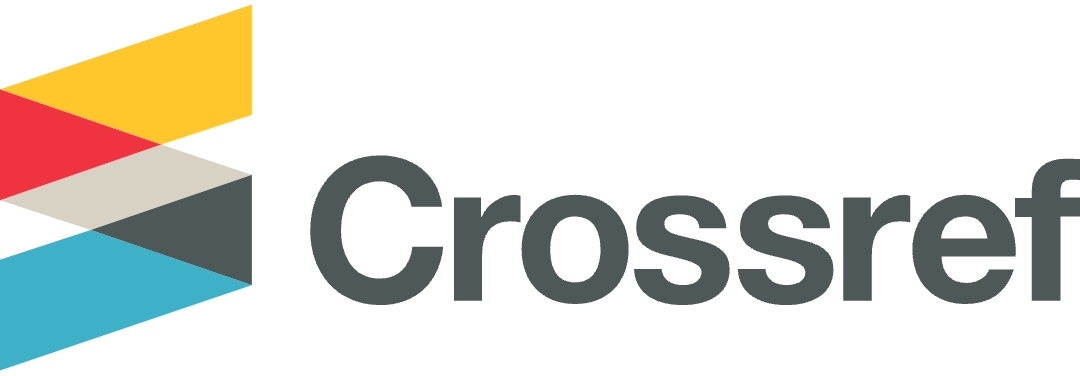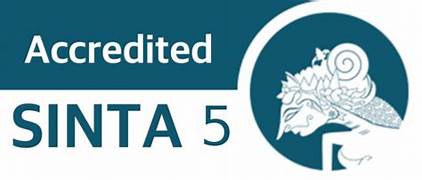Activating Prior Knowledge through KWL Strategy in Young EFL Learners’ Reading
DOI:
https://doi.org/10.54180/joeces.v5i1.470Keywords:
KWL Strategy, Young EFL Learners, Prior Knowledge ActivationAbstract
The KWL strategy (Know, Want to know, Learned) is a pedagogical approach designed to activate prior knowledge and enhance reading comprehension, particularly effective for young learners of English as a Foreign Language (EFL) aged 7 to 12 years. This strategy supports cognitive and metacognitive development by guiding students to reflect on their existing knowledge, generate questions based on their learning needs, and consolidate newly acquired information. It addresses the linguistic and cognitive challenges young EFL learners face by reducing cognitive load and fostering active engagement with reading materials. The flexibility of KWL allows educators to adapt it using visuals, simplified language, and collaborative activities, making it suitable for diverse multilingual classroom settings. Empirical research demonstrates that KWL improves learners’ retention, organization of ideas, critical thinking, and motivation. Effective teacher facilitation, including explicit modeling and scaffolding, is essential to maximize the strategy’s benefits. Moreover, KWL promotes social interaction and cultural responsiveness, which further supports language acquisition and learner confidence. Overall, the KWL strategy offers a systematic, learner-centered framework that nurtures autonomous and motivated readers, contributing significantly to the development of reading comprehension skills in young EFL learners.
References
Aina, I. M. Q., & Rozy, F. S. (2022). The implementation of English teaching learning process for young learners in TK Harapan, Semampir District, Surabaya, academic year 2021/2022. Journal of Early Childhood Education Studies, 1(1), 76–104. https://doi.org/10.54180/JOECES.2022.2.1.76-104
Alodwan, T. A., & Almosa, N. (2020). The effectiveness of KWL strategy on reading comprehension of EFL students. International Journal of Instruction, 13(1), 215-230.
Al Umairi M. Development of Social Interaction and Behavior for Early Childhood Education in the Era Society (5.0). JOYCED J Early Child Educ [Internet]. 2023;3(2):167–76. Available from: https://ejournal.uin-suka.ac.id/tarbiyah/joyced/article/view/8019
Al Umairi M. Pengembangan Interaksi dan Perilaku Sosial Terhadap Pendidikan Anak Usia Dini di Abad 21. Kiddo J Pendidik Islam Anak Usia Dini [Internet]. 2023;4(2):274–80. Available from: http://doi.org/10.19105/kiddo.v4i2.9705
Anderson, R. C. (1984). Role of prior knowledge in comprehension. In R. J. Spiro, B. C. Bruce, & W. F. Brewer (Eds.), Theoretical issues in reading comprehension (pp. 185-209). Lawrence Erlbaum Associates.
Anderson, R. C. (2016). Strategies for activating prior knowledge in reading instruction. Educational Psychology Review, 28(2), 131-152.
Ary, D., Jacobs, L. C., & Sorensen, C. (2010). Introduction to research in education (8th ed.). Wadsworth.
Bowen, G. A. (2009). Document analysis as a qualitative research method. Qualitative Research Journal, 9(2), 27-40.
Bransford, J. D., Brown, A. L., & Cocking, R. R. (2000). How people learn: Brain, mind, experience, and school. National Academy Press.
Brown, H. D. (2021). Teaching by principles: An interactive approach to language pedagogy (5th ed.). Pearson Education.
Cameron, L. (2001). Teaching languages to young learners. Cambridge University Press.
Carrell, P. L. (2017). Prior knowledge and second language reading. Language Learning, 67(3), 575-612.
Creswell, J. W. (2014). Research design: Qualitative, quantitative, and mixed methods approaches (4th ed.). SAGE Publications.
Dewey, J. (1933). How we think: A restatement of the relation of reflective thinking to the educative process. D.C. Heath and Company.
Ellis, R. (2008). The study of second language acquisition (2nd ed.). Oxford University Press.
Fianico Sukmana Rozy, & Aminah, S. (2023). Implementasi teknik drilling komunikatif dalam pembelajaran bahasa Inggris di SDN 1 Surabaya. WALADI: Wawasan Belajar Anak Usia Dini, 1(1), 123–139. https://ejournal.stital.ac.id/index.php/waladi/article/download/268/173/
Fianico Sukmana Rozy, & Tunshorin, C. (2024). Peningkatan hasil belajar bahasa Inggris melalui model Time Token pada siswa kelas V MI Islamiyah Mojopetung Kabupaten Gresik. Jurnal Pendidikan Wahana Pendidikan Dasar, 10(1), 20–29. https://ejournal-unipra.com/index.php/JWPD/article/view/263
Fisher, D., & Frey, N. (2004). Improving adolescent literacy: Content area strategies at work. Pearson.
Flavell, J. H. (1979). Metacognition and cognitive monitoring: A new area of cognitive-developmental inquiry. American Psychologist, 34(10), 906-911.
Fosnot, C. T. (2013). Constructivism: Theory, perspectives, and practice (2nd ed.). Teachers College Press.
Grabe, W., & Stoller, F. L. (2002). Teaching and researching reading. Pearson Education.
Guthrie, J. T., & Wigfield, A. (2000). Engagement and motivation in reading. Handbook of reading research, 3, 403-422.
Harmer, J. (2015). The practice of English language teaching (5th ed.). Pearson Education.
Hudson, T. E., Lignugaris/Kraft, B., & Miller, S. P. (2005). The effect of activating prior knowledge on comprehension. Journal of Learning Disabilities, 38(4), 280-286.
Jonassen, D. H. (1991). Objectivism versus constructivism: Do we need a new philosophical paradigm? Educational Technology Research and Development, 39(3), 5-14.
Krippendorff, K. (2018). Content analysis: An introduction to its methodology (4th ed.). SAGE Publications.
Lightbown, P. M., & Spada, N. (2013). How languages are learned (4th ed.). Oxford University Press.
Lin, T. B., & Wu, J. (2018). Effects of KWL on EFL learners' reading comprehension. English Teaching & Learning, 42(2), 153-178.
Marzano, R. J., Pickering, D. J., & Pollock, J. E. (2001). Classroom instruction that works: Research-based strategies for increasing student achievement. ASCD.
Maghfiroh L, Sidiq AM, Umairi M Al. Peran Ustadzah Thaharah Dalam Pembelajaran Toilet Training Untuk Menerapkan Perilaku Hidup Bersih dan Sehat Pada Anak Kelompok A di RA Perwanida Ketintang. 2024;2(2):53–62. Available from: https://ojs.unublitar.ac.id/index.php/bocil/article/view/1546
Mushab Al Umairi. Reinforcement terhadap Sosial Emosional Anak Usia Dini Di Era Society 5.0. IJECIE Indones J Early Child Islam Educ. 2024;5(2):45–97
Nation, I. S. P., & Macalister, J. (2010). Language curriculum design. Routledge.
Nassaji, H. (2007). The relationship between reading comprehension and other language skills in second language learners. Reading in a Foreign Language, 19(2), 63-80.
Ogle, D. M. (1986). K-W-L: A teaching model that develops active reading of expository text. The Reading Teacher, 39(6), 564-570.
Paris, S. G., & Winograd, P. (1990). How metacognition can promote academic learning and instruction. Issues in education, 2(1), 1-35.
Piaget, J. (1973). To understand is to invent: The future of education. Grossman.
Rumelhart, D. E. (1980). Schemata: The building blocks of cognition. In R. J. Spiro, B. C. Bruce, & W. F. Brewer (Eds.), Theoretical issues in reading comprehension (pp. 33-58). Lawrence Erlbaum Associates.
Shea, T., & Duncan, D. (2020). Metacognitive scaffolding in second language reading instruction. TESOL Quarterly, 54(3), 709-732.
Sidiq AMMAU. THUFULI?: Jurnal Pendidikan Islam Anak Usia Dini Volume 4 Nomor 1 Tahun 2022 e-ISSN: 2658-161X. J Pendidik Islam [Internet]. 2022;4(1):21–8. Available from: https://riset.unisma.ac.id/index.php/thufuli/article/view/18943
Sidiq AMMAU. Social Development of Early Children in Online Learning in the Time of the Covid-19 Pandemic. IJECES Indones J Early Child Educ Stud [Internet]. 2022;11(2). Available from: https://journal.unnes.ac.id/sju/ijeces/article/view/57676
Sidiq AM, Umairi M Al, Salsabillah NI. Penerapan Metode Bercerita Menggunakan Boneka Tangan Untuk Mengembangkan Karakter Anak Pada Kelompok a. JP2KG AUD (Jurnal Pendidikan, Pengasuhan, Kesehat dan Gizi Anak Usia Dini) [Internet]. 2022;3(2):173–84. Available from: https://journal.unesa.ac.id/index.php/jt/article/view/20125
Tompkins, G. E. (2010). Literacy for the 21st century: A balanced approach (5th ed.). Pearson.
Vacca, R. T., & Vacca, J. L. (2017). Content area reading: Literacy and learning across the curriculum (11th ed.). Pearson.
Vygotsky, L. S. (1978). Mind in society: The development of higher psychological processes. Harvard University Press.
Yin, R. K. (2018). Case study research and applications: Design and methods (6th ed.). SAGE Publications.












